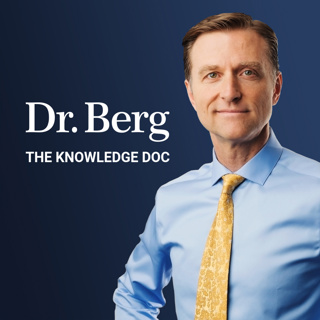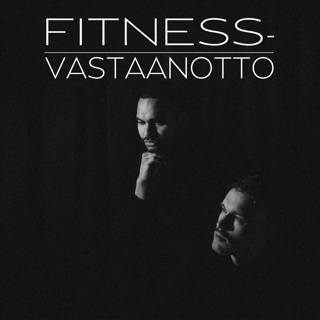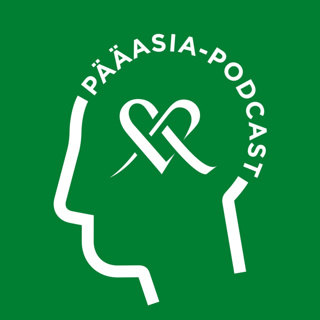
Best Strategies to STOP Overeating
Today I'm going to share the best strategies to stop overeating. Overeating creates strain on your digestive system. One of the best ways to stop overeating is to get rid of your appetite and cravings. The way to do that is to get on the Healthy Keto® diet and do intermittent fasting. When you do Healthy Keto, you’re consuming high-quality, nutrient-dense foods that satisfy the body. On the healthy version of the ketogenic diet, you’re also consuming low-carb foods, which help reduce hunger in-between meals. When you do intermittent fasting, your stomach changes because you’re not eating as frequently—the amount of food you eat is going to be less, but it will be a lot more satisfying. Many different things can cause cravings. You never want to ask what you’re in the mood to eat. Instead, it’s important to be in tune with your body and ask yourself what you should eat to make your body healthier. There are also many different things that can lead to overeating. For example, certain restaurants have portions that are way too big. We also have hunger hormones that increase appetite and are triggered by various things. Top triggers of hunger hormones: • Lack of sleep • Stress • Refined carbs • Large amounts of protein • MSG • Artificial sweeteners Top causes of overeating: • Bile deficiency • Low-fat diets • Junk foods • Lack of energy • Boredom • Pregnancy • Pain • Being overweight • Insulin resistance • Metabolic syndrome • Diabetes Leptin is a hormone that is supposed to keep your hunger satisfied. Here are the best ways to increase leptin: • Get plenty of sleep • Lower your stress • Get regular exercise or physical activity • Add more fiber to your diet • Do fasting • Consume omega-3 fatty acids • Consume green tea • Consume probiotics and fermented foods • Consume nutrient-dense foods Tips to stop overeating: 1. Get on the Healthy Keto diet 2. Do fasting 3. Eat your vegetables first 4. Before eating a meal, determine what you’re going to eat and how much you’re going to eat 5. Chew your food longer 6. Avoid restaurants
9 Loka 202314min

The 5 BEST Tips for Thick Hair
Today we’re going to talk about hair loss prevention and how to get thick hair naturally. A common cause of hair loss is a hormonal issue involving excess DHT, which is a powerful form of testosterone. Typical medications for hair loss work by blocking DHT, but they come with side effects. Potential side effects of hair loss medications can include decreased libido, erectile dysfunction, and depression. Excess DHT is a genetic issue for many people. Certain herbs can be beneficial to help thicken hair, but today, we’re going to cover things you can do that can keep genetic variations in check. How to grow thicker hair naturally: 1. Address hypoxia • Take vitamin D • Avoid omega-6 fatty acids • Consume omega-3 fatty acids (cod liver oil) • Exercise • Address anemia if applicable 2. Get plenty of vitamin D • Take a vitamin D supplment (10,000 to 20,000 IU) 3. Take an l-lysine supplement or consume foods high in l-lysine • Consume red meat, chicken, eggs, fish, seafood, and dairy • Avoid nuts, grains, beans, and seeds 4. Fix insulin resistance • Get on a low-carb diet • Do intermittent fasting 5. Support healthy estrogen levels • Consume phytoestrogens (flax seeds and sprouted legumes) • Support the adrenal glands (take ashwagandha) • Consume foods high in cholesterol DATA: https://pubmed.ncbi.nlm.nih.gov/31537382 https://pubmed.ncbi.nlm.nih.gov/22266320 https://academic.oup.com/jcem/article... https://www.sciencedirect.com/science...
8 Loka 20239min

The #1 Cause of Arterial Stiffness (Hypertension)
Unfortunately, heart attacks, strokes, and high blood pressure are common problems. So, today we’re going to talk about what causes arterial stiffness or calcified arteries. Common causes of stiff arteries: • Age • Inflammation • A high-carb, high-sugar diet • Omega-6 fatty acids There is one additional cause of hardened arteries that many people are unaware of, and it’s a vitamin K2 deficiency. Vitamin K2 drives calcium into the bones to help make them stronger and keeps calcium out of the arteries and the walls of the arteries. Vitamin K2 may decrease the risk of heart attack by 50 percent. Foods high in vitamin K2: • Meats • Organ meats • Egg yolks • Grass-fed butter • Dairy • Yogurt Adding vitamin K2 to vitamin D3 is a fantastic way to support the arteries. For every 10,000 IU of vitamin D3 you take, you should also consume 100 mcg of vitamin K2. It’s important to note that people who take a calcium supplement (1,000 mg or more a day), with or without vitamin D, increase the risk of a heart attack. This could be because of the lack of vitamin K2. It’s also important to keep in mind that one of the side effects of warfarin is vascular calcification. To support the arteries, get on a low-carb diet, avoid omega-6 fatty acids, and consume foods rich in vitamin K2. If you take a vitamin K2 supplement, it may be best to take vitamin D3 as well. DATA: https://www.ncbi.nlm.nih.gov/pmc/arti... https://pubmed.ncbi.nlm.nih.gov/22516... https://www.ncbi.nlm.nih.gov/pmc/arti...
8 Loka 20236min

The #1 Top Warning Sign You Have a Fatty Liver
Today, we’re going to talk about the warning signs of a fatty liver and what to do for a fatty liver. There really is no “first sign” of a fatty liver. When you first start developing a fatty liver, there are no symptoms at all. It’s important to be aware of this because many people have a fatty liver and don’t even know it. People will start to notice signs once the condition has progressed. Signs of a fatty liver: • A protruding mid-section • Insulin resistance Fifty-nine percent of the fat in your liver originates from outside your liver—it’s fat from other places in your body that end up in the liver. Twenty-six percent of fat in the liver comes from the liver itself. The liver makes fat from glucose, and insulin is supposed to stop this process. But, because of dysfunctional fat and insulin resistance, the liver is making sugar uncontrollably. The third source of fat in the liver is dietary fat from consuming sugar. I believe the top cause of a fatty liver is a high-carb diet. The good news is that the liver is the only organ that can completely regenerate. However, there is a point of no return, so it’s time to act now. Natural things to do for a fatty liver: 1. Get on the Healthy Keto® diet and do intermittent fasting 2. Exercise regularly 3. Consume one to two tablespoons of apple cider vinegar in your water a few times a day
8 Loka 202310min

The Best Time of the Day to Take Vitamins
Today we’re going to talk about the best time of day to take vitamins. These results can vary from person to person, so overall, you’ll have to test things out and see what works best for you and your schedule. You’ll still notice plenty of benefits however you choose to take your vitamins. There are two types of vitamins: water-soluble vitamins and fat-soluble vitamins. Fat-soluble vitamins can be absorbed better if taken with fat or before a meal. But, if you’re fasting, you can take vitamins whenever. Cod liver oil: Cod liver oil is a great source of fat-soluble vitamins, and you can consume cod liver oil anytime. However, it may be best not to take it right before bed. Vitamin E: Vitamin E should be taken in the form of tocotrienols and is great to take with meals. Phytonutrients: Many phytonutrients are fat soluble, and this is why it’s great to have olive oil on your salad because it will help extract more phytonutrients. Take phytonutrient supplements and wheatgrass juice with a meal for better extraction. Betaine hydrochloride: Betaine hydrochloride should be taken right before a meal. Digestive enzymes: Digestive enzymes should be taken before a meal. Bile salts or products with bile: Bile salts can be better taken right after a meal. What to take on an empty stomach: • TUDCA • Activated charcoal • Bentonite clay • Individual amino acids • Trace minerals What to take before bed: • Calcium • Magnesium • Probiotics • Vitamin D3 • Vitamin B1 • Detox herbs • Apple cider vinegar What to take in the morning • Electrolyte powder • Vitamin B12 • Stimulatory herbs
7 Loka 202313min

The #1 Vitamin Deficiency behind Bladder Issues (Freq. Urination, Leaky, Urgency)
Today we’re going to talk about the #1 vitamin deficiency behind bladder issues: vitamin B1 deficiency. A vitamin B1 deficiency could lead to problems, including: • Leaky bladder • Incomplete urination • Frequent urination • Getting up in the middle of the night to urinate The common thread behind these bladder issues is actually a problem with the nervous system. The main control with urine elimination stems from the brain, and this part of the brain is very sensitive to a vitamin B1 (thiamine) deficiency. A thiamine deficiency in the brain can even starve off certain neurons, causing a lack of function. The part of the brain that controls the bladder can shrink, leading to a loss of control of the bladder. This situation is common with age and in those with diabetes, prediabetes, or chronic insulin resistance. Natural tips to get rid of bladder issues: 1. Take vitamin B1 (benfotiamine and natural B1) 2. Get on the Healthy Keto® diet and do intermittent fasting 3. Drink 2.5 liters of fluid a day (not past 6 pm or 7 pm) 4. Consume apple cider vinegar (1 to 2 TBSP in water) 5. Reduce caffeine consumption 6. Massage the bladder DATA: https://pubmed.ncbi.nlm.nih.gov/19386... https://pubmed.ncbi.nlm.nih.gov/19846... https://www.ncbi.nlm.nih.gov/pmc/arti... https://www.ncbi.nlm.nih.gov/pmc/arti... https://www.ajnr.org/content/29/1/164 https://pubmed.ncbi.nlm.nih.gov/25846... https://pubmed.ncbi.nlm.nih.gov/15664... https://pubmed.ncbi.nlm.nih.gov/15664... https://onlinelibrary.wiley.com/doi/a... https://pubmed.ncbi.nlm.nih.gov/19194... https://repository.kulib.kyoto-u.ac.j... https://pubmed.ncbi.nlm.nih.gov/20369... https://www.hormonesmatter.com/thiami...
7 Loka 20238min

The 3 Vitamin Deficiencies in Sciatica and Carpal Tunnel Syndrome
Today I’m going to share three common nutritional deficiencies related to sciatica and carpal tunnel syndrome and ways to tell which one might be affecting you most. Vitamins B1, B6, and B12 are intimately involved in the nervous system and may be behind these painful conditions. 1. Vitamin B6 benefits • Helps build the myelin sheath • Helps produce neurotransmitters • Helps protect sensory nerve integrity • Helps increase nerve conduction and velocity • Is involved in the metabolism of the nervous system Vitamin B6 deficiency causes: • Taking the wrong form of vitamin B6 in large amounts • Gut inflammation • Celiac disease • Crohn’s disease • Age • Certain medications • Alcohol • Birth control pills • Certain genetic variations • Smoking • Diabetes • Excess coffee consumption * It’s important to take the active form of vitamin B6, pyridoxal-5-phosphate (P5P). 2. Vitamin B12 benefits: • Helps support nerve regeneration • Helps support myelin production • Helps support nerve growth factors Vitamin B12 deficiency causes: • Certain genetic factors • Lack of animal products in the diet • Low stomach acid • Excess consumption of folic acid • Alcohol • Diabetes • Malabsorption • Birth control pills * It’s important to take the natural form of vitamin B12, methylcobalamin. 3. Vitamin B1 (thiamine) benefits: • Helps support blood flow to the nerves • Helps counter the complications of diabetes Vitamin B1 deficiency causes: • Diabetes, prediabetes, and insulin resistance • Excess coffee consumption • Excess tea consumption * It’s important to take the fat-soluble version of vitamin B1, benfotiamine. DATA: https://www.sciencedirect.com/science... https://www.ncbi.nlm.nih.gov/pmc/arti... https://www.ncbi.nlm.nih.gov/pmc/arti... https://pubmed.ncbi.nlm.nih.gov/30712... https://www.ncbi.nlm.nih.gov/pmc/arti...
7 Loka 202311min

Use Your EAR to Predict a Heart Attack
There is an interesting predictor of a heart attack that you can look for right now. Go to the mirror and look for a crease on your ear lobe, starting where the hole is and coming out 45 degrees. Coronary artery disease or cardiovascular disease causes you to lose blood flow to the heart muscle. A chronic lack of blood flow to the heart causes the loss of circulation in the peripheral parts of the body first, like the ear lobes. Without this blood supply to the ear lobes, you can develop this crease. This crease shows up in about 71% of people with heart disease. However, it has also been found to appear in other health conditions like diabetes and high blood pressure. People who smoke may also notice this crease, but it’s most commonly seen in people with heart problems. It’s important to act now to support a healthy heart: 1. Get on the Healthy Keto® diet and do intermittent fasting 2. Exercise regularly 3. Take tocotrienols 4. Consume omega-3 fatty acids (cod live oil) 5. Take vitamin K2 with vitamin D3 DATA: https://academic.oup.com/omcr/article... https://www.ncbi.nlm.nih.gov/pmc/arti...
6 Loka 20234min





















